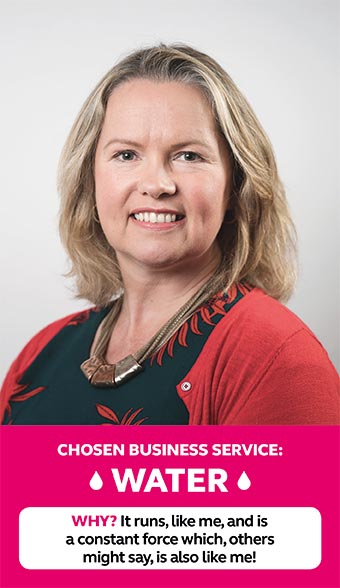This year the government is planning to introduce a number of legislative changes which could impact small to medium sized enterprises (SMEs) across the UK. Verastar summarises these changes in the following article.
Employment status
HM Revenue and Customs (HMRC) has decided to launch proposals to tighten the definitions of ‘employed’ and ‘self-employed’ this year. This could affect your tax obligations as a small business owner, meaning you need to determine if these policy proposals apply to you and your company.
Whitehall is also planning to review employment status in 2016. This could impact your business if you depend on a flexible workforce to operate.
Overseas employees
The UK is planning to introduce new rules which will change how businesses recruit non-European Union (EU) workers in 2016. The Government’s Migration Advisory Committee will issue proposals which will be designed to reduce the number of overseas professionals working in the UK in January, which will become law in April.
These proposals will restrict sponsorship of non-EU employees to industries without skills shortages, in order to encourage businesses to train British workers. This could raise average salaries and increase your company’s wage costs. Furthermore, in 2016 the government will extend the offence of ‘knowingly’ hiring an illegal member of staff to ‘having reasonable cause to believe’ that the worker is illegally employed, so it’s vital your HR team carries out extensive pre-employment checks.
Enforcement of SBEE Act
Evidence suggests that the long-awaited Small Business Enterprise and Employment (SBEE) Act will become law in April 2016. This will require businesses to name ‘natural persons,’ as opposed to ‘legal persons’ (which may be a private or public organisation) as their company directors. If this applies to your business, start considering which ‘natural persons’ would be suitable replacements for your corporate directors now.
The Act will also require you to compile a register of people with “significant control” of your venture (someone who owns over 25% of your businesses shares or voting rights). Furthermore, the Act will alter company filing requirements; as of April 2016 you’ll have to deliver a “confirmation statement” to HMRC, instead of filing an annual return, at least once per year.
HR Considerations
There are a number of HR considerations you’ll need to keep track of over the next 12 months, including the introduction of the ‘national living wage’ of £7.20 per hour for employees aged 25 and over in April 2016. Along with current proposals to extend Sunday trading hours, you may find it necessary to increase your company’s employee salary budget this year.
Childcare rules will also change in 2016. The government will launch a new childcare benefit scheme, which will allow working parents to claim 20% of childcare costs of up to £2,000 for every child. The Childcare Bill is also due to come into force this year and this will double (to 30 hours per week) the amount of free childcare available to the working parents of three and four year old children.
As of April zero hours contract workers who have been dismissed (or subjected to a detriment) for failing to comply with an exclusivity clause will be able to claim unfair dismissal without having to adhere to a qualifying period.
Finally when the Enterprise Bill becomes law in April, companies hiring apprentices will be obliged to provide on-the-job training and at least 30 hours of paid work every week.
Pension changes
Make sure that you remember that The Pensions Act 2014 will come into effect in April 2016. This will introduce a new flat-rate for pensions. By 2018, every employer will be obliged to provide staff with an adequate workplace pension. This is being introduced in stages and thousands of SMEs will have to enact these changes as early as this January. If you miss your staging date you could be fined thousands of pounds by the government, so visitthepensionsregulator.gov.uk to find out when your company must comply with this legislative change.
Digital regulations
The advancement of modern technology has allowed many UK SMEs to develop thriving digital operations. If you’re one of them, there are two pieces of digital legislation that could affect you in 2016. The first is the Electronic Identification and Trust Services (EIDAS) law, which will come into effect across the EU in July 2016.
This law will make it easier for you to execute transactions across national borders, which could benefit your company if you export products or services to other countries. Meanwhile, remember that EU General Data Protection Regulations will likely come into force this year. These laws will compel you to keep consumer data safe, as well as comply with data protection rules.
Tax changes
Finally, the government announced a number of changes to tax policies in 2015 which will come into effect throughout 2016. First, Whitehall will raise the employer national insurance employment allowance to £3,000, a move which is designed to encourage SMEs to hire additional staff. Second, from April 2016 business owners will have to pay higher tax on dividends, meaning that you will need to review how your small business distributes profits to its owners. The current system of dividend tax credits will be supplanted by new rates of dividend tax and a single £5,000 ‘allowance.’
Verastar
Many UK SMEs struggle with the cost of adhering to regulation. A study conducted by the Forum for Private Business, a UK-based SME lobbying group, indicates that regulation costs SMEs and micro firms close to £41 billion per year. Therefore it’s essential that as a small business owner, you keep track of legislative changes, so you can ensure your operation thrives in 2016.
Verastar is a leading provider of essential business services to micro SMEs, operating under the following brands: Kinex, Clear Business Water, Titan Telecom, Marble Telecom, Economy Gas and 118777 Limited. Our business model is focused on providing a spectrum of consolidated services that disrupt traditional markets and create great savings, efficiencies and value for our customers.
















